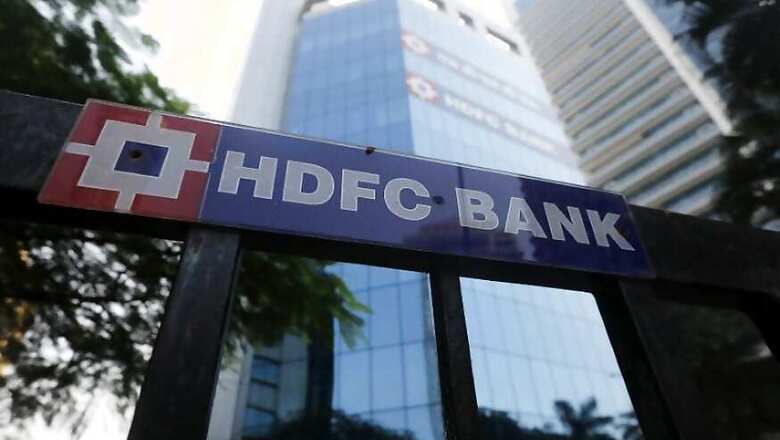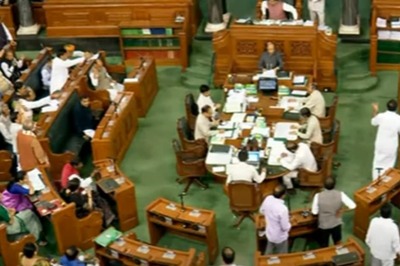
views
It is the COVID-19 quarter. We are in a state of a “social emergency”. A recent exchange filing indicated that the People’s Bank of China (PBOC) has acquired a stake of 1.01% in the Housing Development Finance Corporation (HDFC).
They had a 0.8% stake in HDFC before the COVID-19 quarter. It was this bargain purchase by PBOC that provoked the thought process that led to this article. Before delving further, let’s go back in time - some 2,100 years ago. We take you to Rome, for there is no COVID-19 yet, and so it is safe to time-travel to Italy.
Back in the day, Rome had no fire department. The middle born son of Senator Crassus Dives sensed an opportunity and created the first-ever Roman fire-brigade of 500 men.
However, the purpose of this force was not to serve. Rather, the brigade would look forward to fire accidents which would then permit this son of Rome to acquire the fire-afflicted estates at a bargain.
The specific modus operandi was that the unfortunate owner would be presented with two options – either to let their property burn down or to distress sell their property. Two options. No real choice. This noble-entrepreneur was Marcus Licinius Crassus. Crassus went on to become the richest man in Rome. When Italy was burning, he was thriving.
Welcome to the world of realpolitik. A world where even Machiavelli is a mere philosopher, writer and diplomat. That was as far as he could get. Crassus was none of that.
To a true practitioner of realpolitik such accomplishments do matters. And thus, Crassus went on to rule Rome as a part of the triumvirate (along with Caesar and Pompeii).
If the greatest trick the Devil ever pulled was to convince the world that he did not exist, the enigmatic Crassus comes far closer to this Devil than the well-understood Machiavelli.
It is said that history is, among many other things, the annals of crime. History must never be forgotten because all crimes happen in cycles.
Sir Arthur Conan Doyle would advise if he were still alive, “The most practical thing that you ever did in your life would be to shut yourself up for three months and read twelve hours a day at the annals of crime!”
Doyle, the writer, was not just the creator of “Sherlock Holmes”. He was also a doctor, and as is often said these days, let’s listen to the good doctor’s advice.
With the COVID-19 pandemic, global markets are discovering gravity. The markets reflect the reality, after all. The automobile sector, for instance, is among the worst affected, because the lockdown hurts income, impacts savings, stops production and marketing among everything else.
The last thing on consumers’ mind, right now, is purchasing a car. This state of free-fall asks a few interesting questions.
The first of these questions is ethical. The thought process is as follows - what differentiates a manslaughter or an accidental killing from a murder? A manslaughter is an accident with neither intention nor motive.
But murder is wilful, there is always an intention, there is sometimes motive. However, if the perpetrator of manslaughter, consequently profiteers from the act, should it still be considered manslaughter, or should it be termed murder?
Even if one were to ignore the overwhelming evidence that COVID-19 was not satisfactorily managed by China and don’t demand any compensation, one would be hard-pressed to argue in favour of China taking advantage of this mess to shop cheap.
The People’s Bank of China recently shopped for 36 lac shares of HDFC and increased their stake by 0.2% in this quarter. They have been accumulating their stakes for a while now, and are now holding 1.01 %.
Central banks of other countries purchase bonds of highly rated companies but buying an equity stake is uncommon. While this minor transaction is not a concern in the bigger scheme of things, a fundamental ethical question needs to be addressed.
Yes, China has lots of loose cash. Yes, there is a lot of scope for discount buying. But will discount shopping be part of an ethical response to the situation on the part of China?
Instead of responding emotively, the authors argue that this is merely a “case in point” to drive home an important message. The need for regulation.
The exponents of the free market, authors included, argue that markets are wise and reflect reality. Indeed, the market itself is a self-regulating space and demonstrates a certain degree of “homeostasis”.
While this tenet is generally true, it is also true that markets can be distorted. This is why we have the SEC in the USA (the Mecca of Free-Markets). This is why we have the SEBI in India.
While the free-market principle should continue to be the fundamental tenet for our stock market, it could be argued that the job of the regulator is to ensure that a free market remains free.
At present, there is limited ‘freedom’ in this quarter. Quite literally, there is limited freedom to practise one’s profession, limited freedom to even move.
Besieged by COVID-19, we are just about as free as the historical hostages of Crassus. Hence, this is the time for the regulator to step in and consider diligence.
The next question that begs to be asked is the degree and nature of regulations. Is SEBI, the Indian capital markets regulator, to bar all stock market transactions? A stock market lockdown of sorts?
Of course, not. In this age and day, stock markets are where people invest their savings. One cannot rob a resident of a legitimate means to access savings. However, one must not allow pandemic-profiteering either.
Therefore, access to secondary capital markets, as far as foreign players are concerned, must be restricted with immediate effect. Yes, this will create a demand-side slump. Yes, prices will fall.
However, right now, we are not using stock markets as barometers of economic health. Foreign investment can be approved on a case-to-case basis, but not through the secondary market route.
If there is a foreign entity that wants to partner with India on any research, specifically COVID-related, that must be encouraged and approved without red-tapism.
In fact, partners who were all praise for India’s opening up of Hydroxychloroquine supply chain could be encouraged to invest in research in India.
With COVID-19, there is a great scope to enhance our research and developmental interests. History teaches us that wars stimulate innovation like nothing else.
World War II stimulated the minds of Alan Turing and created advancements in the fields of computation. The cold war gave thrust to the space programmes in the US and the Soviet Union.
Ultrasound is a blessing to the biomedical imaging industry. It is non-invasive, non-radioactive and safe. However, the first technological application of ultrasound was an attempt to detect submarines by Paul Langevin in 1917. The First World War acted as a major catalyst in the development of blood banking technology.
In a way, the COVID19 Pandemic is third world war, with humanity on one side and the virus and misinformation on the other. No reason to suspect that this war won’t stimulate research and innovation.
So let’s welcome foreign investment – both financial as well as mental – but in a purposeful manner and not in the secondary market which can be completely ‘quarantined’ and ‘economically distanced’ from foreign entities.
The authors are fully optimistic about the future of the Indian industry. Governments world over are watching India’s resilient response to COVID-19. With India selflessly opening up access to its Hydroxychloroquine, the world now sees India as a benevolent entity.
Governments are also realising the importance of diversifying supply chains rather than relying on a singular/cheapest chain. In other words, the world will likely not see China as the ‘world factory’ anymore.
It will then be up to us to leverage the possibilities and make ‘Make in India’ the natural outcome. Thus, optimism and hope are fully justified.
Meanwhile, let us protect our assets from distress sale. If one argues that such regulation at this juncture itself would be an over-reaction, one would do well to remember history.
Was Rome destroyed by a series of estate purchases by Crassus? Well, the reader should note that in the year 69 AD when Crassus and his brigade were long gone, the Great Roman Fire burnt down nearly two-thirds of Rome.














Comments
0 comment